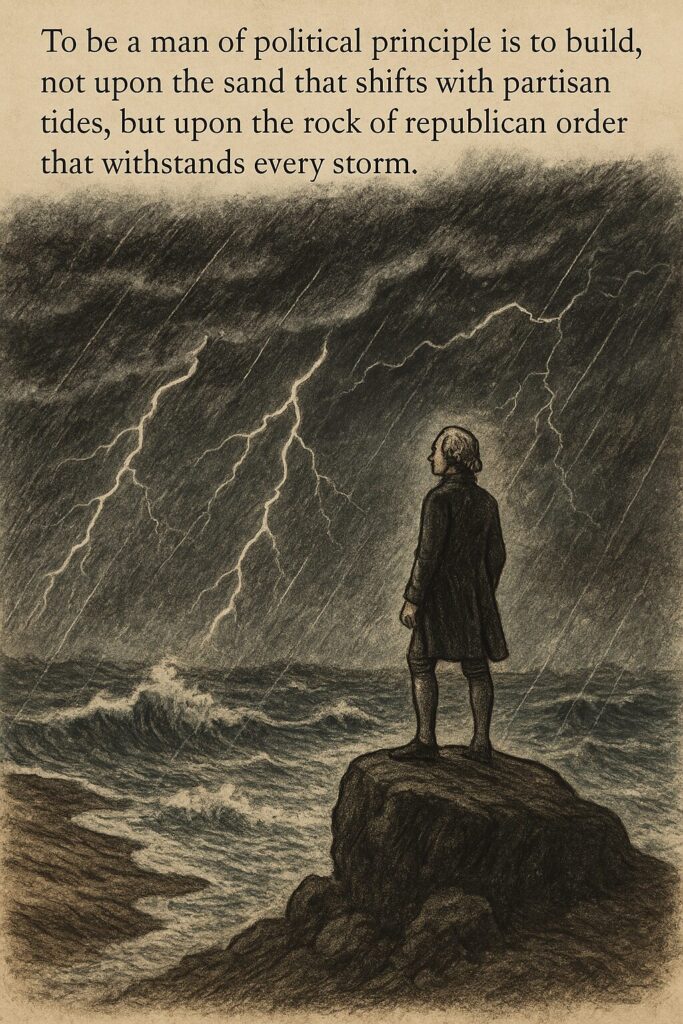Reflections on Political Incivility in the Shadow of Violence
Introduction
In August 2010, I wrote a column for a forum on civility in politics. I began with Madison’s famous reminder in Federalist No. 51: “If men were angels, no government would be necessary.” My argument was straightforward: civility is not something we can engineer or enforce. In a free society, where convictions clash and passions flare, incivility is inevitable. The wiser course is not to imagine its disappearance, but to blunt its most destructive effects.
Fifteen years later, the world feels heavier. Our public square has grown harsher, faster, and more unforgiving. Words fly across digital platforms like arrows, amplified beyond proportion and stripped of context. Yet words, even uncivil words, are not the gravest danger we face. On September 10, 2025, America was reminded of a darker threat when Charlie Kirk was assassinated during a campus event in Utah. The alleged gunman, a 22-year-old man, was swiftly captured, but the wound left in our national life will not heal quickly.
The tragedy of Kirk’s death has cast a shadow over the very questions I raised in 2010. What role does incivility play in our politics? Can its consequences be contained? And now, more urgently: what lines must never be crossed?
Incivility Revisited
The temptation after such a calamity is to conclude that incivility itself is the problem—that if we could just rid politics of sharp words, we might prevent sharp actions. I do not believe that is true. Nor do I believe Charlie Kirk would have wanted it to be.
Kirk made his career entering into hostile arenas, engaging audiences who jeered as often as they cheered. He sought out the sting of disagreement, not because he enjoyed animosity for its own sake, but because he believed debate mattered. In that, he stood in a long American tradition. Our republic has always been noisy. Jefferson and Adams dueled with pamphlets. Andrew Jackson and his rivals slandered one another with venom that makes cable news seem tame. Incivility, though unpleasant, is part of the heat generated by a free people striving to govern themselves.
The greater danger is not incivility but violence—the moment when argument is abandoned for the bullet, when disagreement yields not to persuasion but to annihilation.

A Republic’s Red Line
Kirk’s assassination joins a sorrowful lineage of American political violence: the shooting of Representative Gabrielle Giffords in 2011, the assault on Paul Pelosi in 2022, and the attempted assassination of former President Donald Trump in 2024. Each was different in its context, but each carried the same message: when violence enters politics, the republic itself is put at risk.
A free nation can survive harsh words. It cannot survive the silencing of voices through intimidation or murder.
Conclusion
We would be remiss to think the meaning of Charlie Kirk’s death is that we must sanitize our politics of incivility. That would not honor Charlie, who faced incivility head-on, nor would it honor the spirit of a republic founded on the contest of ideas.
To honor Charlie rightly, we must recommit ourselves to the path he chose: to engage, to debate, to confront disagreement openly, even when passions run high. And whether we admired his positions or opposed them, we must together reject violence as the language of politics.
Incivility may always accompany freedom. Violence, however, is freedom’s mortal enemy. Let us, then, argue fiercely, but live to argue another day. Only in that way can we remain faithful both to the example of those we have lost and to the enduring promise of our republic.
Honor Charlie. Honor Gabby. Reject violence—so that the republic may endure.
This essay was updated with the assistance of ChatGPT. The arguments—and the errors—remain my own.

